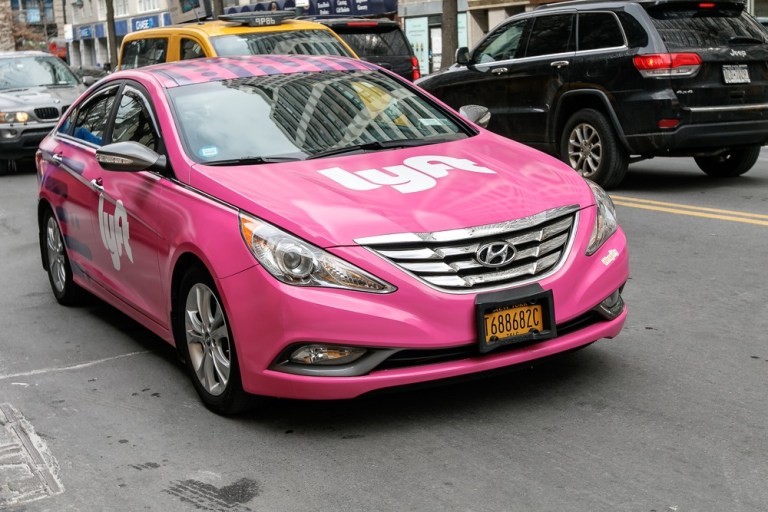Lyft Reveals How Much Drivers Earn

There’s been a great deal of debate over how much drivers actually earn working for companies like Uber and Lyft. Now, the latter is finally revealing what its drivers pull in per hour.
“Understandably, we’ve seen a few external groups take their own guesses at what Lyft drivers make, usually as an hourly average across the country,” Lyft head of driver communications and community, Laura Copeland, wrote on Medium. “This is an important topic, so we want to help set the record straight, and then shed some light on our approach to helping drivers earn the most with us.”
As TechCrunch explained, wages rely on a number of factors, including the market, number of trip requests accepted, time of day, length of trip and so on.
But once a Lyft driver has accepted and completed a ride, the company reveals that median earnings are $29.47 per hour, nationwide. In Lyft’s top 25 markets, it’s $31.18 per hour.
When you factor in the amount of time spent online, when drivers are waiting for rides, it comes out to $18.83 per hour nationwide and $21.08 per hour in those top 25 markets.
“Driving expenses – and tax deductions – vary for every individual, depending mostly on the year and model of their car, and how often they use it for ridesharing,” wrote Copeland. “The estimate we’ve found most useful for expenses is $3-$5 per hour.”
She went on to explain that the company has some new initiatives to help its drivers maximize their performance, including information on the best places to drive; reducing expenses with fuel discounts, maintenance and more through the Accelerate and Express Drive programs; pay transparency to show net earnings, how much the passenger paid and Lyft’s take; bonuses for great service and specialized rides; and new education benefits from Guild, as well as advice from Intuit on filing taxes.
“We have a responsibility to treat our drivers well and help them succeed,” adds Copeland. “We accept this responsibility not only because Lyft’s success depends on our driver community, but also because many drivers depend on Lyft. This is not something we take lightly, and we’ll continue working hard every day to create the best and most fulfilling economic opportunities for them.”